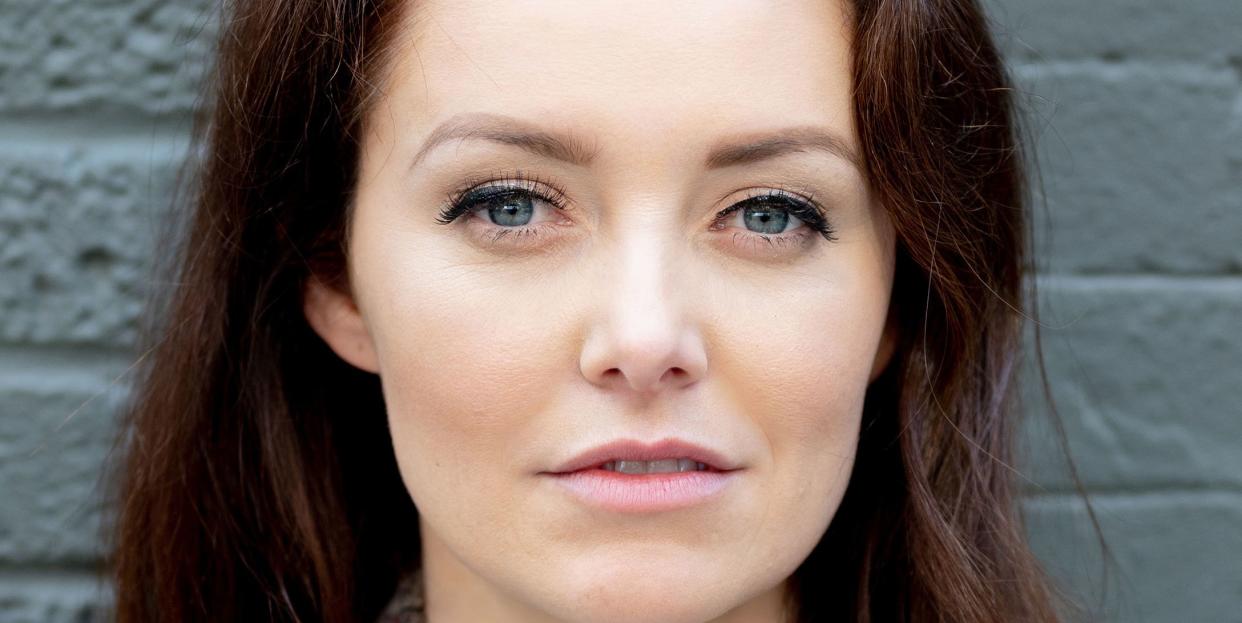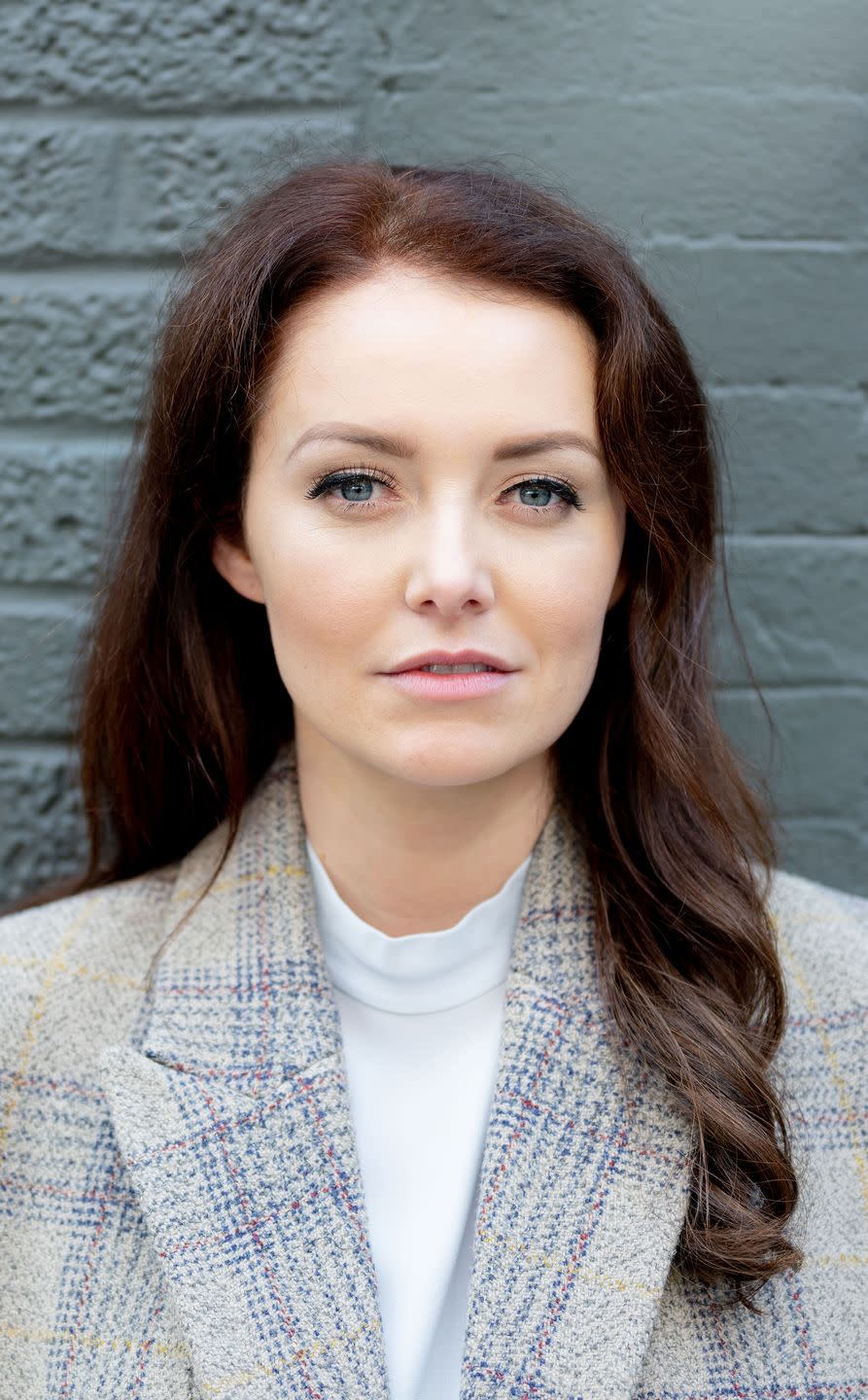Why Lindsey Boylan Decided to Speak Out


Lindsey Boylan believes in the possible. It’s what led the urban planner to work in government as a public servant and what’s led her to currently run for Manhattan borough president. But, while working within the Cuomo administration as deputy secretary for economic development and housing, she was, she says, subjected to a toxic work environment and sexually harassed by Governor Andrew Cuomo.
Her decision to come forward, like many survivors, was a complicated one. She initially spoke out about the bullying and damaging workplace culture of the administration in December 2020. A few days later, she disclosed, again on Twitter, that she had been sexually harassed, but she did not provide details. On February 24, she decided to publish her full account, becoming the first woman to publicly tell her story of sexual harassment by the New York governor. Since then, two other women have come forward.
We spoke a few days after she published her full allegations—a week during which she was both hounded by paparazzi and received public support from some members of New York’s Democratic Party. Below, Boylan talks about the power of telling her story and what we need to change in our culture to support survivors.
In December 2020, you tweeted about Cuomo’s abusive work environment. You didn’t initially talk about the sexual harassment you experienced, but you pointed to a wider workplace culture of abuse. Can you talk about what compelled you to disclose the details about the sexual harassment?
A young woman reached out to me after I went public about the toxic work environment in Cuomo’s administration to talk about sexual harassment. I hadn't mentioned my experience publicly yet, but her experience was similar to my own. It really broke my heart, because she's younger than I am and I couldn't protect her.
I woke up the next day, and the governor was being floated for attorney general, the highest law enforcement position in the U.S. And I didn't think about it at all … I began tweeting about my experience. My husband said, "Why didn't you tell me you were going to tweet this?" I think part of me was unwilling to do that, because I knew that someone would talk me out of it. I felt like I had to do it. But those first tweets were not planned at all.
After I initially came forward, it felt like I had intentionally blown up my own body into pieces all over the world, and people were looking at them. It almost felt like I had done this to myself. I had made that choice.
Shortly after Cicely Tyson passed away, I was watching a bunch of her interviews. One was about the sexual harassment she had experienced with an acting coach early in her career. This was more than 50 years later, and she was crying. I always thought that if I was ever going to tell my story, it was going to be many, many years from now. But the Tyson interview really resonated with me. It shows you how much abuse affects people.
What I'm hearing from you is how important it is to share stories with fellow survivors. Can you talk about the impact of hearing fellow survivors’ stories?
I had more sympathy for myself after I heard this young woman's story.
It helped me process my own experience. That was incredibly important for me, because a big aspect of my sense of success in the world is trying to not let anything affect me. Trying to be perfect. Trying to marshal forward, never cry, never feeling it.
But when I put the information out there the first time, people that I hadn't talked to in decades reached out to me. People I never knew reached out to me. I (felt) a real sense of purpose to change things, to end abuse, particularly against women, and to change the culture that continues to allow it.
That's why I spoke out. But I didn't realize how important it would become to me that I did it in my own voice. The more I started thinking about how I would tell this story, the less I wanted someone else in the media to tell it. I wanted to be able to say what the experience meant to me so that I didn't have to be revictimized. It was really important for me to find a way to tell my own story.
Since you've published your piece, two other women, Charlotte Bennett and Anna Ruch, have come forward with experiences with the governor. In response, you tweeted, “This doesn’t make me feel validated. It makes me feel sick.” Have you been able to reach out to them?
I never interacted with Anna, but it made me feel nauseous as I read her account. I feel a tremendous amount of love for her and want to protect her in any way that I can. I have interacted with Charlotte, and I'm in awe of how she's handled herself. There is a tremendous amount of love and connectivity that I feel for others who have had these kinds of experiences.
For Democratic politicians, when sexual harassment issues come up, fellow Democrats often argue that those allegations should not be discussed because those politicians are too valuable to the whole Democratic project. I'm wondering if you can talk a little bit about that critique.
That's not my Democratic Party, and it angers me when I hear that. That's not why I decided to be in this field. That's not what I'm about. My family consisted predominantly of women who had a lot of generational trauma. I came into this space, because I wanted to do something about the bad things that I saw, either within my family or growing up. You can't fix the things in your past, but you can change that for other people.
I lose respect for people who continue to use those kinds of arguments. Because that's not a tent that I want to be in. They're always welcome to come and see where the real fight is. The real fight is to help people who are closest to the pain.
Abuse does not confine itself to one area. Someone who abuses their power, doesn't just do it towards women or to one community. They do it, in some way, to every community. That's not who I'm in the fight for. I'm in the fight with people who are really focused on the issues. That's why I'm doing this.
How has this experience changed your relationship to politics? And, as a high-achieving and ambitious woman, your relationship to work?
It's surprising to people, but I'm an introvert. It's not my favorite thing to be the center of attention. I actually just like listening, and then doing something about it. I like to be in the room, and then figure out how I can help. Sharing this experience, I've placed myself in the spotlight … it's not a place I'm comfortable.
But I have realized that some people weren't going to be open to me if they didn't get a sense of where I'm really coming from. If I was unwilling to open up about these things, then how can I ask people to trust me (as a public servant)?
I came from a family that had a lot of challenges, like a lot of families, we all have different responses. Mine was always to organize things and figure out how they work. It gave me a sense of optimism from a very young age that I think I was very lucky to have. That, for me, is why government and public service can be so positive. It can be a really beautiful thing.
The governor has issued a statement in response. What do you think of it?
I just want the abuse to stop. I'm really not focused on punishment. I'm focused on accountability. And I think we're seeing somewhat the way the governor (and his administration) operates, the way that they are, and it's being seen in real time. And I think that's really unfortunate, but probably necessary.
Do you have any advice for others who are struggling with coming forward about sexual harassment that they've experienced? What words do you wish you could have heard before you came forward?
I have a very good friend who's been with me throughout this process. And she said, "You know, Lindsey, your life didn't change when you spoke out. Your life changed when these things happened to you." I just thought that was so profound. It helped me feel a little free.
There are a million and one reasons why people who have had terrible experiences don't come forward. It's in the data. It tells you a lot about ingrained misogyny. So much of what happens to survivors is this culture of shame. “I did something,” or, “I'm bad,” or, “I don't deserve to heal from this.” The more we can talk about that and be curious about why someone is so against it … it has nothing to do with the person who's had the really bad thing happen to them. It has everything to do with the person who's saying it.
It is a very difficult experience, coming forward. And, at the same time, we need to have people feel more comfortable to do it. And the only way that's going to happen is if more and more people do it.
I can't fix what happened, but I am not going to let that be the story. I'm certainly not going to let that be the story for my daughter. I think we really do have to do a lot of work to demystify who commits abuse of power, who is abused, what that looks like. And that's not a day training. That's a deep part of the work that we have to do.
This interview has been edited and condensed for clarity.
You Might Also Like

